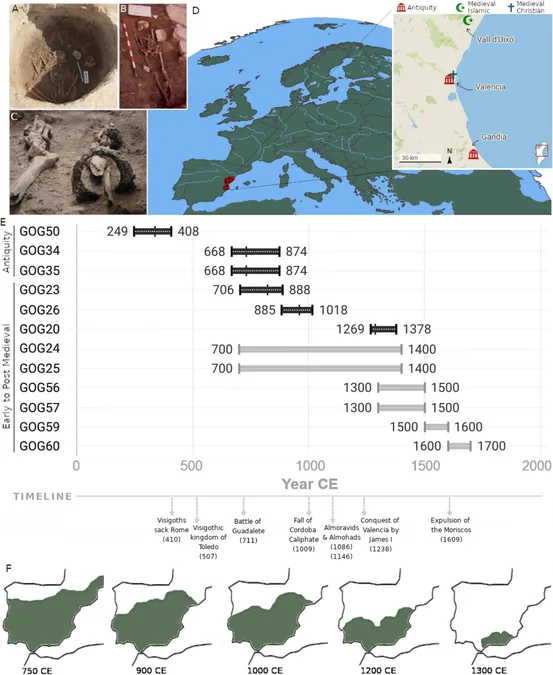
Shocking Ancient DNA Findings Illuminate Ethnic Cleansing in Spain
2025-05-21
Author: Jia
Uncovering Spain's Hidden Genetic History
A groundbreaking study by the University of Huddersfield's Archaeogenetics Research Group has unveiled startling revelations about Spain's genetic landscape, linked directly to a historical ethnic cleansing on the Iberian Peninsula.
Ancestral Lines and Ethnic Cleansing
Led by Ph.D. researcher Gonzalo Oteo-García, the research utilized ancient DNA analysis to trace the DNA lineage of Spaniards, highlighting how North African influences shaped demographics from Roman times through the medieval era. The collaboration included notable figures like Professor Martin Richards and geneticists from Dublin's Smurfit Institute.
North African Roots Predate the Islamic Conquest
The researchers discovered that gene flow from the Mediterranean into Iberia was evident well before the Islamic conquest, with North African ancestry detectable as far back as the 4th to 8th centuries. This ancestry's presence persisted in a Christian cemetery in Valencia until the 17th century, hinting at a rich, intertwined history.
The Expulsion of the Moriscos: A Dark Chapter Revealed
The study's most striking finding connects to the Expulsion of the Moriscos at the start of the 17th century—a harrowing ethnic cleansing that forcibly deported approximately 300,000 Muslims who had converted to Christianity back to North Africa. This drastic event effectively erased much of the North African genetic legacy from eastern Spain.
From Spain to South America: A Genetic Legacy
Despite the intense purge, traces of North African heritage have lingered in South America, carried by colonists who fled before the Expulsion. This intriguing twist highlights Spain's long-reaching cultural and genetic influences.
The Research Process: Bridging Past and Present
To support their research, the team worked alongside museums and archaeological collections across Valencia, employing advanced genomic techniques at the University of Huddersfield’s ancient DNA lab. Their findings contribute significantly to understanding how political upheavals and cultural shifts shaped the demographic landscape.
Reflections on a Sensitive Topic
Oteo-García expressed the complexities of their findings, stating, "Our pursuit began with a pure academic curiosity about medieval Iberia's population. Yet, as we delved deeper, the link between ancient genetic evidence and the grim narratives of our history became undeniable. These insights are as sobering as they are important."
Forward-Looking Impact and Future Research
Professor Richards praised Gonzalo’s initiative in spearheading this project, illustrating the significant thought leadership among young researchers. With ongoing support from a doctoral scholarship program, the University of Huddersfield aims to continue its rich tradition of groundbreaking studies in evolutionary genomics.
As this research opens new avenues for exploration, both historians and geneticists look forward to unraveling more about Spain's dynamic past—one that intertwines genetics, culture, and deep historical significance.




 Brasil (PT)
Brasil (PT)
 Canada (EN)
Canada (EN)
 Chile (ES)
Chile (ES)
 Česko (CS)
Česko (CS)
 대한민국 (KO)
대한민국 (KO)
 España (ES)
España (ES)
 France (FR)
France (FR)
 Hong Kong (EN)
Hong Kong (EN)
 Italia (IT)
Italia (IT)
 日本 (JA)
日本 (JA)
 Magyarország (HU)
Magyarország (HU)
 Norge (NO)
Norge (NO)
 Polska (PL)
Polska (PL)
 Schweiz (DE)
Schweiz (DE)
 Singapore (EN)
Singapore (EN)
 Sverige (SV)
Sverige (SV)
 Suomi (FI)
Suomi (FI)
 Türkiye (TR)
Türkiye (TR)
 الإمارات العربية المتحدة (AR)
الإمارات العربية المتحدة (AR)